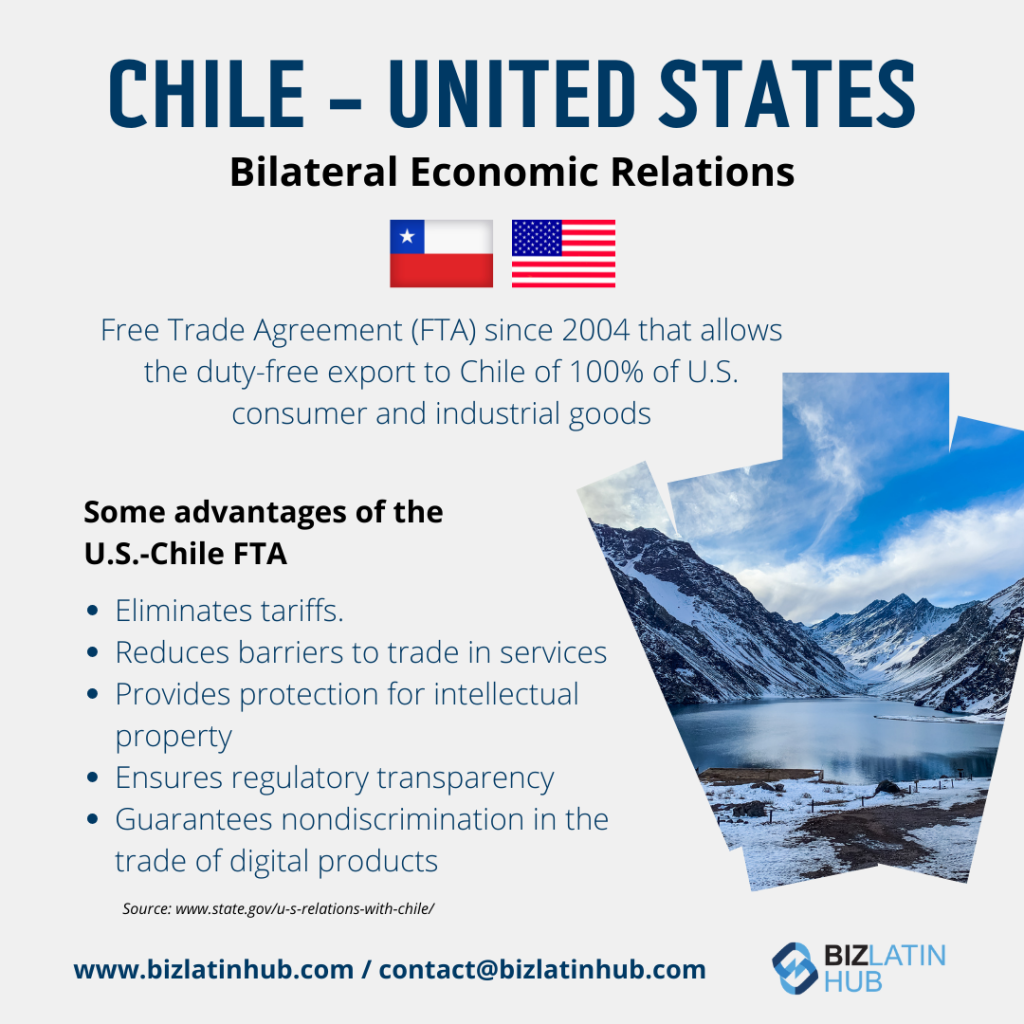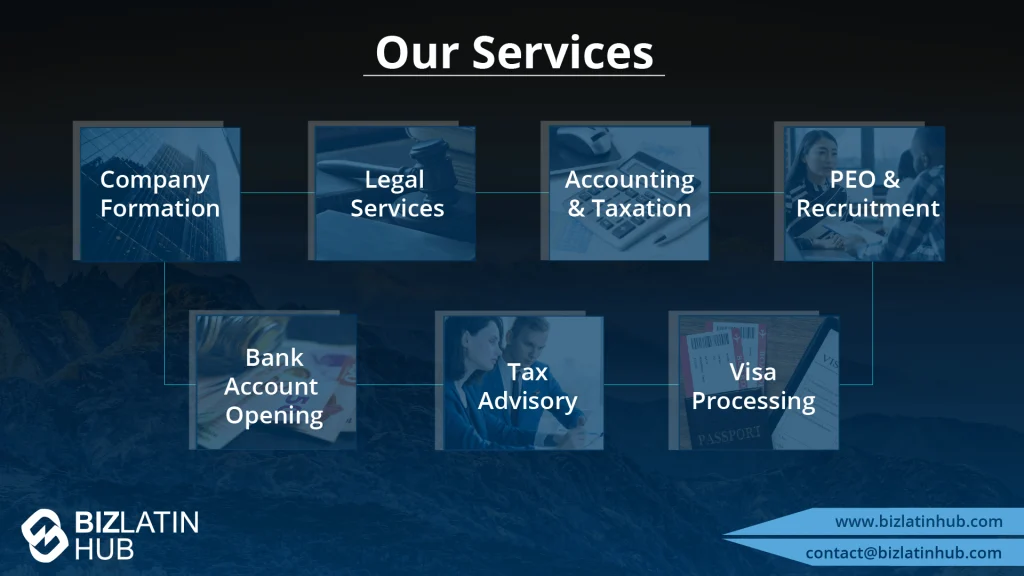Chile’s economy has been a shining example of progress and growth in Latin America. With its stable political environment, investor-friendly policies, and commitment to innovation, Chile has positioned itself as a leader in economic development.
Over the years, the country has made remarkable strides in various sectors, particularly in technology and entrepreneurship. Additionally, Chile’s strategic alliances with global partners and its favorable business climate have attracted significant foreign investment.
In late June, the U.S. Senate voted to approve the Chile Tax Treaty which could have a major impact on the Latin American country’s economy.
Let’s examine the implications of the Chile Tax Treaty with the U.S. for businesses and understand why having experienced tax representation in Chile is of utmost importance.
See also: Company formation in Chile

Understanding the New Chile Tax Treaty with the U.S.
On June 21, 2023, the U.S. Senate overwhelmingly voted to advance the Chile Tax Treaty. Chile must now approve the new changes to the original treaty which was signed in 2010.
“Today’s historic approval of the U.S.-Chile Tax Treaty represents another meaningful step forward in leveling the economic playing field for American businesses and strengthening U.S. ties with one of our strongest democratic partners in the Americas,” said U.S. Senator Bob Menendez, Chairman of the U.S. Senate Foreign Relations Committee.
“This tax treaty – the third of its kind with a Latin American country – will bolster U.S. competitiveness and help advance our national interests by building productive partnerships to enhance our economy and deepening two centuries of diplomatic relations with Chile. I’m proud to have led these efforts in the Senate as part of our shared vision to build a prosperous future for both of our countries.”
If approved, the Chile Tax Treaty would have the following effects:
- Restrict the withholding tax rates on dividends disbursed from the United States to Chile to 15%, with a reduced rate of 5% in specific circumstances.
- Restrict the withholding tax rates on interest and royalties paid between both countries.
- Grant exemption from taxation in the source country for certain capital gains made from the sale of shares or other rights in a company residing in the source country.
- Eliminate the withholding tax on service payments if they qualify as business profit and the income is not linked to a permanent establishment.
For years, business interests have advocated for the tax agreement’s implementation. The U.S. Chamber of Commerce has identified it as a pressing priority, emphasizing the potential consequences of its absence.
According to the business group, without this agreement, taxes on U.S. companies operating in Chile could soar to over 44%.
The agreement is seen as essential for securing U.S. companies’ access to lithium, a critical mineral for electric car batteries.
Why the Chile Tax Treaty is Important
This new treaty holds great significance as it is one of only two U.S. treaties with a South American country (the other being with Venezuela) and marks the first approved treaty by the U.S. Senate in over a decade.
The Chile Tax Treaty aims to promote cross-border trade and investments, allowing for smoother movement of employees between the United States and Chile while reducing or eliminating double taxation on the same income.
Ratification of the treaty would be especially important for U.S. taxpayers seeking to claim foreign tax credits for Chilean income tax on their U.S. tax returns. In the absence of an income tax treaty, tax professionals have had to analyze whether Chilean income taxes are eligible for credits in the U.S.
However, once the relief from the double taxation article of the tax treaty takes effect, Chilean income taxes recognized under this article should be considered creditable for U.S. tax purposes, provided they are paid by a U.S. citizen or resident who elects to utilize the treaty’s benefits.

Partner with a Tax Expert to Understand the New Chile Tax Treaty
By partnering with a reliable tax representative, you can ensure that your business follows all the relevant tax laws and rules in Chile, and prevent any issues with legal compliance.
Chile is undergoing many social and economic reforms, so your business must stay on top of all the legal updates.
An experienced local legal expert can also help you avoid any cultural, financial, and legal issues a new business may face in the Chilean market.
Biz Latin Hub Can Help You Start a Business in Chile
At Biz Latin Hub, we offer a comprehensive range of market entry and back-office services in Chile, Latin America, and the Caribbean.
Our expertise encompasses being an EOR in Chile, hiring and PEO, accounting and taxation, company incorporation, and corporate legal advice.
With wholly-owned subsidiary offices throughout the region, we have the expertise to answer your questions and help you achieve your business goals.
Contact us today to learn more about the Chile Tax Treaty with the US and how we can help you achieve your business goals in Latin America and the Caribbean.
Get the latest news and discover more about doing business in Chile HERE.






